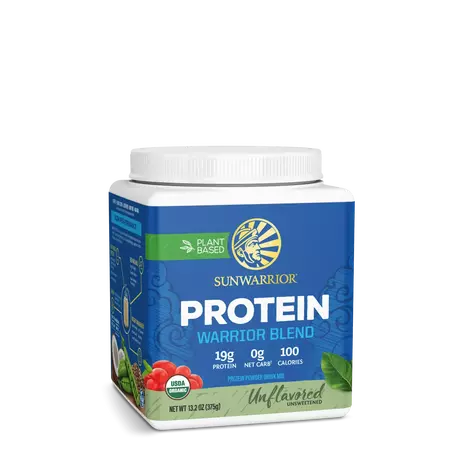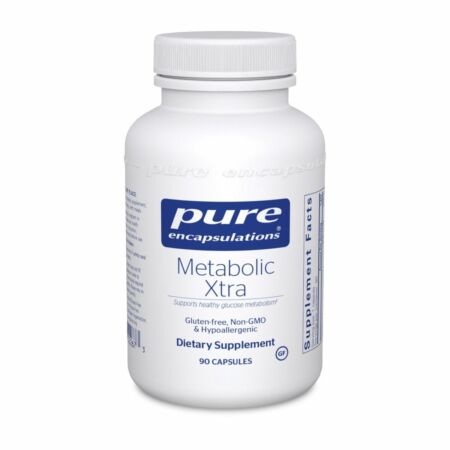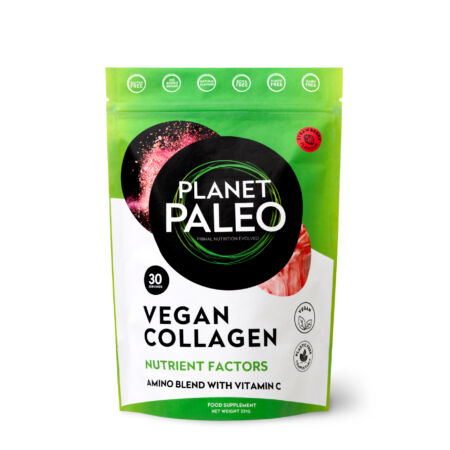Discover the importance of nutritional therapy for a healthy metabolism. Learn how it can help you make informed choices about the foods you eat and achieve your health and wellness goals. Approved by our Nutritional Therapists in Wilmslow, Cheshire.
A healthy metabolism is essential for maintaining overall health and well-being. Metabolism is the process by which the body converts food into energy. Nutritional therapy is a holistic approach to health and wellness that focuses on the role of diet and nutrition in supporting optimal metabolic function. By understanding the relationship between nutrition and metabolism, you can make informed choices about foods and how they impact health. In this article, we will explore the importance of nutritional therapy for a healthy metabolism.
What Is metabolism?
The body's metabolism is responsible for providing energy to carry out essential functions such as breathing and digestion. The basal metabolic rate (BMR) refers to the minimum number of calories required to sustain these functions. Several factors can influence metabolism or BMR.
The term metabolism refers to the series of chemical processes that occur in the body as it converts food and drink into energy. This is a complex process that involves combining calories and oxygen to generate and release energy, which in turn fuels the body's various functions.
Even during periods of rest, your metabolism continues to function, providing essential energy for breathing, blood circulation, digestion, cell growth and repair, hormone regulation, and body temperature management.
What is meant by the basal metabolic rate (BMR)?
The basal metabolic rate (BMR) is the minimum number of calories required by the body to function while at rest, and this amount can vary from person to person.
Aggressive calorie restriction and rapid weight loss can lower your BMR, which is one reason why weight loss is often not a linear process and may plateau at some point.
What can affect metabolism?
Age: Metabolic rate tends to slow down as you age, which can increase the risk of weight gain[i].
Muscle mass: The more muscle mass you have, the more calories your body burns[ii].
Environmental temperature: Exposure to cold temperatures can increase your metabolic rate as your body works to maintain its temperature[iii].
Physical activity: All body movements require energy, so the more active you are, the more calories you'll burn[iv].
Hormone disorders: Conditions such as hypothyroidism can slow down metabolic rate and increase the risk of weight gain[v]. Likewise, hyperthyroidism can speed up metabolic rate too much.
What about discrepancies in metabolism?
It is interesting to note that obese individuals generally have a higher total and resting metabolic rate compared to those with a normal weight. This is partly because obese individuals have a greater amount of muscle mass to support the extra weight[vi].
However, studies have also found that obese individuals have higher metabolic rates regardless of their muscle mass.
Can you speed up your metabolism?
Lifestyle suggestions:
High-intensity workouts, or high-intensity interval training (HIIT), are considered one of the most effective forms of exercise. HIIT involves short, intense bursts of activity such as sprints or fast push-ups. This type of exercise can significantly increase your metabolism, even after the workout is over, resulting in what is known as "the afterburn"[vii].
Strength training is another effective way to increase your metabolic rate. This is because strength exercises promote the growth of muscle mass, which is directly linked to metabolic rate. Unlike fat mass, muscle mass significantly increases the number of calories you burn even when at rest[viii].
Lack of sleep not only negatively impacts overall health, but it may also lead to a slower metabolic rate and increased risk of weight gain. Research has shown that metabolic rate can decrease by 2.6% when healthy adults slept for only four hours per night for five consecutive nights[ix].
What about diet and metabolism
You can support your metabolism by consuming fresh fruits and vegetables, protein, and healthy sources of carbohydrates and fats.
Eat enough calories:
While reducing calorie intake is a key weight loss method, consuming too few calories can be counterproductive in the long term. This is because calorie restriction can cause a decrease in metabolic rate, which is referred to as starvation mode or metabolic adaptation. This effect is the body's way of protecting itself against potential starvation. Studies have shown that consistently consuming too few calories per day can lead to a significant decrease in metabolic rate that persists even after the diet is discontinued[x].
Eat enough protein:
Consuming enough protein is essential if you want to build or maintain muscle mass, but protein has other important qualities as well. All food can lead to a temporary increase in metabolic rate, known as the thermic effect of food, but this effect is much stronger after eating protein compared to carbohydrates or fat[xi].
Recommended supplements for a healthy metabolism
Sun Warrior Warrior Blend Protein Natural or Planet Paleo Vegan Collagen - Protein: Protein supplementation is important due to the reasons explained above[xii].
Pure Encapsulations Liquid Vitamin D3 (1000IU per drop) - Vitamin D: Vitamin D deficiency has been linked to a slower metabolic rate. Supplementing with vitamin D may help increase metabolic rate and support healthy weight management.
Pure Encapsulations Magnesium Powder - Magnesium: Magnesium is an essential mineral that helps regulate metabolism and energy production in the body. Supplementing with magnesium may help support healthy metabolic function.
Bare Biology Life & Soul Omega 3 Fish Oil or Cytoplan Omega 3 Vegan -Omega-3 fatty acids: Omega-3 fatty acids have been shown to support a healthy metabolism by increasing levels of the hormone leptin, which regulates appetite and metabolism.
Viridian Green Tea - 500mg Green tea extract: Green tea extract contains a compound called epigallocatechin gallate (EGCG), which has been shown to boost metabolism and increase fat burning.
Pure Encapsulations Metabolic Xtra - May support healthy insulin receptor function and signalling and healthy glucose metabolism. It’s a powerful combination of nutrients that may help support insulin receptor function as well as healthy glucose metabolism.
Functional testing for issues relating to metabolism
Metabolomix Plus: A fully detailed analysis of metabolic health is provided of individual vitamins, minerals, phytonutrients and amino acids status, as well as markers for gastrointestinal function and oxidative stress.
Genetic Testing: We work with the leading genetic testing facilities to offer the latest in nutrigenomic testing. This is not a single test but can be a bespoke range of tests discussed between yourself and your Nutritional Therapist.
Complete Thyroid Panel: This test analyses serum levels of TSH, total T4, free T4, free T3, anti-TG antibodies, and anti-TPO antibodies, complete with reverse T3 to assess central and peripheral thyroid function, as well as thyroid auto-immunity. The thyroid plays a crucial role in regulating metabolic function. The thyroid gland produces hormones that control the rate at which the body uses energy, which is known as the metabolic rate. When the thyroid is not functioning correctly, it can lead to a variety of metabolic disorders, including weight gain or loss, fatigue, and changes in appetite. Conditions such as hypothyroidism and hyperthyroidism can significantly impact metabolic health and overall well-being. In this article, we will explore the connection between the thyroid and metabolic health, and how maintaining thyroid health can support a healthy metabolism[xiii].
The takeaways: Why is nutritional therapy important for a healthy metabolism?
The importance of nutritional therapy for a healthy metabolism lies in the fact that the food we consume provides essential nutrients that support metabolic processes. Maintaining a balanced and diverse diet that includes all the necessary macronutrients (carbohydrates, protein, and fat) and micronutrients (vitamins and minerals) can aid in sustaining a healthy metabolism and energy production.
What’s more, nutritional therapy can help identify any nutrient deficiencies or imbalances that may be affecting metabolic function and overall health. Certain foods and nutrients have been recognised to have specific effects on metabolism, such as increasing thermogenesis or reducing inflammation, which can contribute to a healthy metabolic rate. Through working with a nutritional therapist, you can receive a personalised plan that supports healthy metabolism, whilst looking after your overall wellbeing.
While your basal metabolic rate is mainly influenced by factors beyond your control, there are several ways to increase the number of calories you burn. The strategies discussed in this article can be helpful in boosting your metabolism. However, it's important to note that metabolism isn't the only factor that affects weight loss. A healthy, well-balanced diet is also essential.













